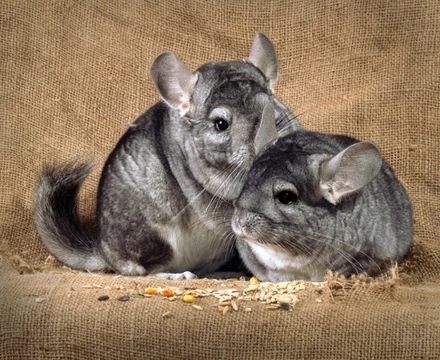
Chinchillas for Beginners: Complete Care Guide
The chinchilla is a charming rodent native to South America, known for its luxuriously soft fur, large ears, and lively personality. Despite their delicate appearance, chinchillas make rewarding pets with proper care and understanding. This guide will help you determine if a chinchilla is the right pet for you and offer detailed advice on caring for them responsibly.
Basic Information and Choosing Your Chinchilla
Chinchillas are nocturnal animals that tend to be more active in the evening and night, which may suit owners who work during the day. They are generally timid but can become very tame with gentle handling. Young children are usually not recommended to care for them directly because chinchillas are delicate and require careful handling. They have an exceptionally long lifespan for rodents, often reaching up to 20 years, so they represent a significant long-term commitment.
Most chinchilla enthusiasts recommend keeping two chinchillas together, ideally same-sex pairs unless you are prepared to manage breeding responsibly. Chinchillas are social animals who enjoy companionship, play, and grooming one another, reducing boredom and stress. Introducing adult chinchillas can be challenging, so purchasing a bonded pair or introducing them slowly under supervision is advisable.
Housing and Equipment
Chinchillas require a spacious cage to accommodate their energetic nature and need to climb and jump. A cage with multiple levels, sturdy wire mesh construction, and secure locks is essential to prevent escape and chewing through. Inside the cage, provide a hide box lined with soft bedding where your chinchillas can retreat during the day.
Because chinchillas are sensitive to heat, especially in the UK's warmer months, including a cool marble or slate slab in their enclosure helps them regulate their body temperature. Drafts and humidity should be avoided as they can lead to respiratory problems. Additionally, chinchillas need regular access to a dust bath using chinchilla-specific dust, which keeps their thick fur clean and healthy. Avoid giving chinchillas water baths as their dense coats can retain moisture and cause fungal infections.
Other necessary equipment includes a water bottle, high-quality food bowl, chew toys to maintain dental health, a mineral block for essential nutrients, and safe wood-based litter for the cage floor.
Feeding Your Chinchillas
The chinchilla diet should be simple yet highly nutritious. Feed a commercial pellet formulated specifically for chinchillas to ensure a balanced intake that prevents selective eating. Alongside pellets, provide a constant supply of good-quality grass-based hay such as Timothy hay, which is crucial for digestive health and dental wear.
Chinchillas love treats but they require careful moderation. Popular safe treats include dried fruit pieces, sunflower seeds, and specially made chinchilla treat bars. Always offer treats sparingly to avoid digestive upset or obesity and never feed sugary, salty or high-fat human foods, as these can be harmful.
Acclimatising and Handling Your Chinchilla
When bringing your new chinchilla home, allow at least two to three days for it to acclimatise without disturbance, helping it feel secure in its surroundings. Talking gently to your pet helps with recognition and trust building.
Start interaction by offering treats from your hand inside the cage. When your chinchilla confidently approaches, you can begin gentle strokes followed by carefully lifting it. Always support their body weight from below and be aware they can be wriggly and prefer to explore rather than sit still for long periods.
Daily supervised playtime outside the cage is beneficial. Ensure the environment is safe, free of wires or escape routes, and consider using a playpen as an additional safety measure. Frequent, gentle handling helps maintain tameness and strengthens your bond.
Common Challenges and Solutions in Chinchilla Care
Chinchillas can be shy or nervous, especially with new owners. Patience and consistent gentle handling build trust over time. Avoid sudden loud noises or excessive handling initially.
Dental problems can occur if their teeth grow too long; providing plenty of chew toys and hay helps prevent this. Heatstroke is a risk in warm weather, so keeping the cage cool and shaded is critical.
Regular cage cleaning and dust bath provision help prevent skin and respiratory issues. Observe your chinchilla for changes in behaviour or appetite, and seek prompt veterinary advice if concerned.
Long-Term Commitment and Responsible Ownership
Chinchillas live up to two decades and require ongoing commitment to their care. Research thoroughly before acquiring chinchillas and seek reputable breeders who prioritise health and temperament. Avoid impulse purchases to ensure you are ready for the responsibilities.
Providing a stable, enriching environment, proper diet, and gentle social interaction will ensure your chinchillas thrive and provide affectionate companionship for years to come.
By following these comprehensive care guidelines, you'll be well-prepared to welcome chinchillas into your home and enjoy a rewarding pet relationship based on understanding and responsible care.



